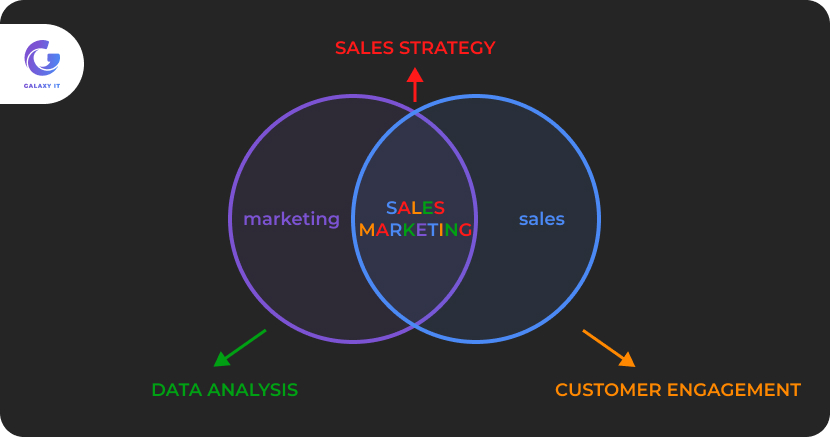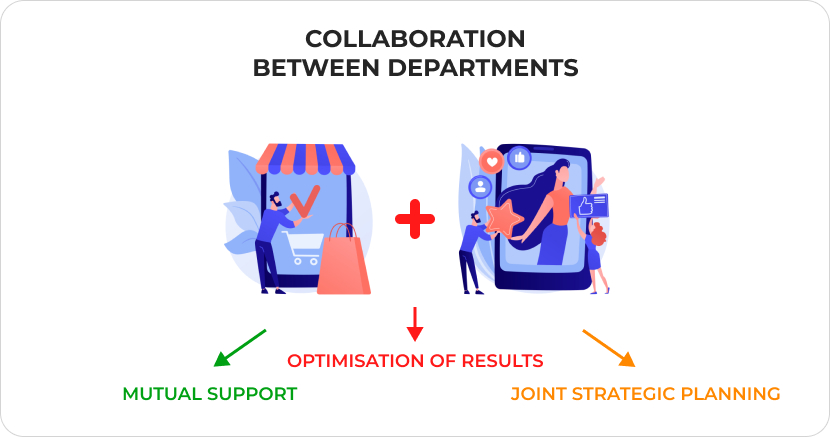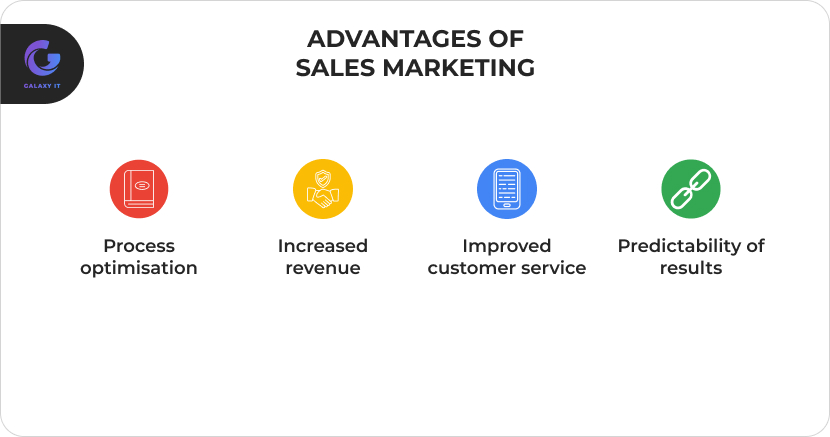Sales Marketing: How to Boost Your Revenue to Business
- 15.07.2024
- 1 views
- 5 min
What is Sales Marketing?
To effectively promote your brand or product today, staying attuned to the rapid changes in your audience's consumption habits is crucial, and this is where sales technology plays a pivotal role.
By integrating marketing and sales departments, your company can optimize its strategies and achieve optimal results when qualifying leads throughout the sales funnel.
To gain deeper insights into implementing this concept into your sales strategies, this article explores the fundamentals of sales marketing and its potential to boost revenue generation for your company.
What is Sales Marketing?
In simple terms, sales marketing is the amalgamation of "sales" and "marketing", but it goes beyond that-it advocates for the integration of these two departments within a company.
The core idea of sales marketing is to align these sectors to enhance customer prospecting and revenue generation. This concept emphasizes inbound sales, fostering a strategic and analytical approach to the goals of both sales and marketing teams, as well as the data they gather about potential customers.
By conducting thorough analyses of this data, teams can develop more robust action plans and make informed decisions to attract customers effectively.

Collaboration between sales and marketing teams is crucial. While each department maintains its own objectives, cooperation is prioritized to ensure cohesive lead qualification and higher conversion rates.
Ultimately, promoting synergy between sales and marketing aims not only to increase revenue generation but also fosters other benefits such as improved teamwork and a cooperative atmosphere among all employees involved in these integrated processes.
Potential strategies of Sales Marketing
To illustrate how to effectively implement sales marketing concepts and practices in your company, we emphasize key strategies essential for aligning sales and marketing teams, improving lead generation, and ultimately boosting your revenue!
1. Formation of a Professional Team
The sales and marketing teams, despite their differences, collaborate closely towards a shared objective: converting leads and driving revenue.
For successful implementation of sales marketing, it's crucial to align both teams from the outset, emphasizing the optimized approach achievable through their collaboration.
Uniting these departments starts with fostering awareness among employees about the collective goals they are working towards. Implementing internal practices such as:
- Facilitating integration activities between teams;
- Streamlining communication processes across departments;
- Encouraging joint initiatives between both teams.
Ultimately, a successful sales strategy hinges on cultivating a cohesive team dynamic where collaboration thrives.
Do you need a professional sales and marketing team?
Contact us and we'll help you achieve your business goals.
2. More Collaboration Between Sales and Marketing Departments
Building on our previous discussion, fostering collaboration between teams is crucial for implementing and ensuring the effectiveness of your sales strategies.

While a healthy level of competition is natural between sales and marketing departments, it shouldn't overshadow the importance of unity and cooperation.
Both teams are inherently driven by goals and results, which historically may have fostered a sense of rivalry.
To successfully implement sales marketing, it's vital to dismantle the notion that internal competition is the norm. Instead, emphasizing the benefits of collaboration—such as optimized results and streamlined processes—can motivate teams to support each other more effectively.
Clearly demonstrating how teamwork enhances outcomes can inspire a shift towards a more cooperative approach, ultimately leading to greater success in achieving shared objectives.
3. Automate marketing processes
Utilizing tools that facilitate access to critical customer and lead data for both sales and marketing teams is essential for optimizing their strategies.
It's imperative not to withhold information between departments—both sales and marketing should have comprehensive access to this data. With this shared information, they can better understand leads and develop more effective action plans.
Implementing an automation tool that centralizes data across teams is crucial. This alignment reduces confusion and enhances efficiency in both departments.
A CRM platform, for instance, streamlines customer and lead management, eliminating unnecessary bureaucracy and ensuring dynamic access to information.
Ways to Boost with Sales Marketing
Now that the purpose of sales marketing is clarified, it's crucial to grasp its impact on generating qualified leads and revenue for your company.

When successfully applied to your sales strategies—whether through online sales or other means—sales marketing enhances how leads perceive your company. Optimized processes, streamlined bureaucracy, and personalized service tailored to each customer's needs are decisive factors that propel leads through the sales funnel and towards conversion.
Effectively implemented, sales marketing brings predictability to your strategies and campaign outcomes. It leverages opportunities generated by the marketing team, providing clearer insights into ROI (Return on Investment) and CAC (Customer Acquisition Cost).
In essence, sales marketing aims to unify sales and marketing departments, streamlining internal processes and improving customer service. By facilitating the purchasing journey for leads, the primary objective of implementing sales marketing is to boost your company's revenue through enhanced service delivery.








